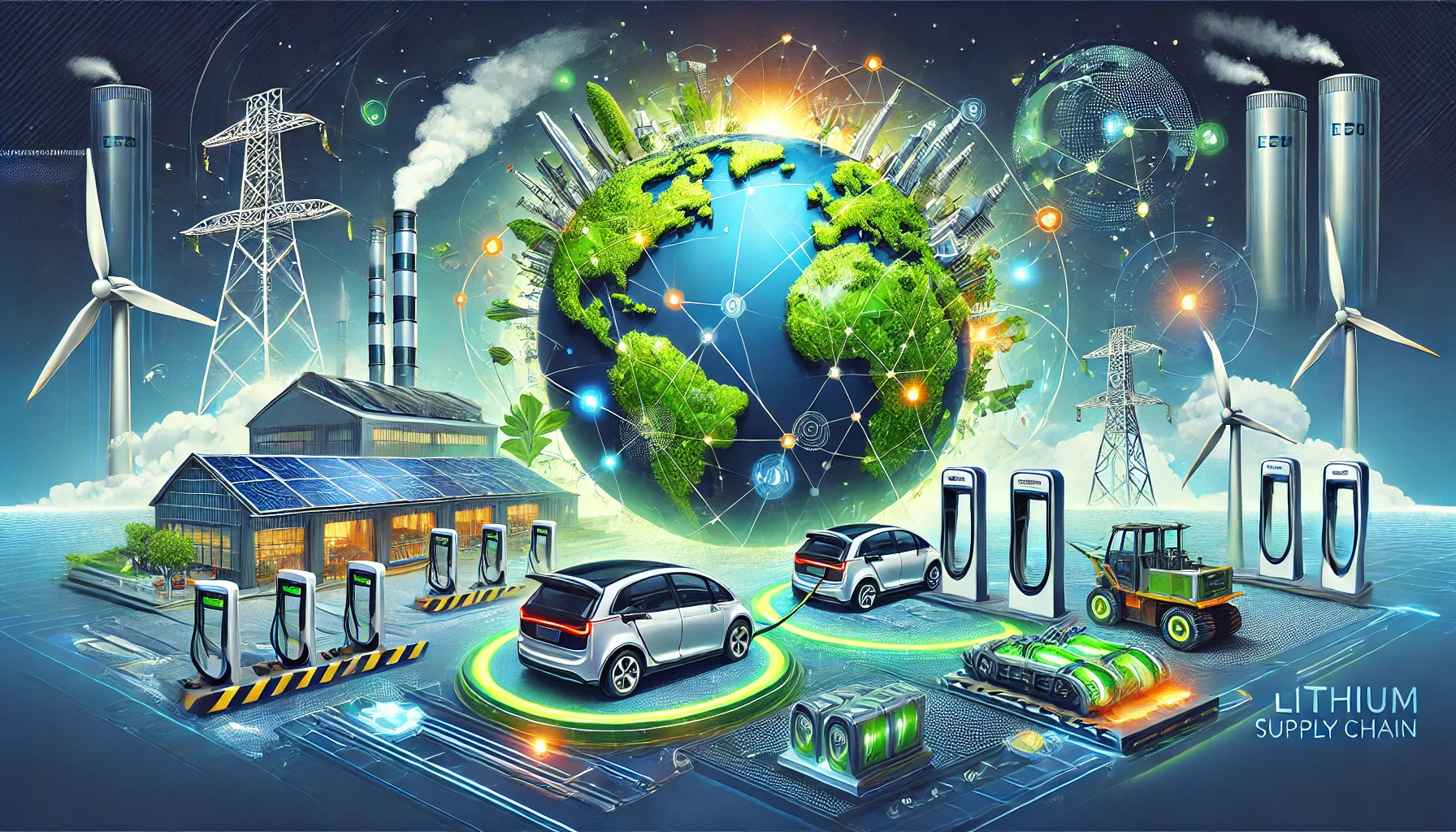How Lithium Prices and Acquisition Strategies Are Shaping the Global Supply Chain for Electric Vehicles
The global demand for electric vehicles (EVs) continues to surge as industries push for more sustainable energy solutions. At the heart of this revolution is lithium, the critical mineral used in EV batteries. As a key player in the energy transition, lithium is vital in making EVs feasible, affordable, and accessible. But as demand grows, so do the challenges surrounding lithium prices, acquisition strategies, and the global lithium supply chain. In this post, we’ll explore how these elements are shaping the EV industry’s future.
The Role of Lithium in Electric Vehicle Batteries
Lithium is an essential component of modern electric vehicle batteries, most notably lithium-ion batteries, which offer a high energy density necessary for EVs. These batteries power a vast range of consumer electronics and electric vehicles, from smartphones to cars produced by Tesla, BMW, and General Motors. As the world moves toward greener technologies, electric vehicle batteries represent a significant portion of the lithium market, pushing demand for this versatile metal to new heights.
According to the International Energy Agency (IEA), global EV sales are expected to surpass 14 million units in 2024, with a significant portion driven by the availability and cost of lithium-ion batteries. As a result, the lithium supply chain plays a critical role in determining the pace and scale of the EV market’s growth.
The Impact of Lithium Prices on EV Supply Chains
The first major factor influencing the supply of EV batteries is lithium prices. In recent years, the market has seen fluctuations due to various global factors, such as oversupply from countries like China and fluctuating demand. These price shifts directly affect the overall cost of electric vehicle batteries and, consequently, the price of EVs themselves.
For instance, a recent dip in lithium prices—largely due to an oversupply from Chinese producers—resulted in a 50% drop in Arcadium’s stock value, making it a prime target for acquisition. As prices fluctuate, it creates opportunities for large companies to engage in strategic lithium acquisition deals, securing long-term supplies at a lower cost.
Strategic Lithium Acquisitions: The Rio Tinto-Arcadium Deal
In the current market, lithium acquisition strategies are a hot topic. One of the most notable ongoing deals is the potential acquisition of Arcadium by Rio Tinto, a leading global mining company. If successful, this deal will place Rio Tinto among the largest global suppliers of lithium, a critical resource for the growing EV market.
The Rio Tinto Arcadium deal could be worth between $4 billion to $6 billion, depending on market conditions and ongoing negotiations. Arcadium, which specializes in direct lithium extraction (DLE), has extensive lithium mining operations across multiple continents. The merger would not only give Rio Tinto access to Arcadium’s rich lithium deposits but also allow them to benefit from Arcadium’s innovative lithium extraction technology.
By acquiring Arcadium, Rio Tinto would significantly strengthen its position in the global lithium supply chain, securing the resources needed to meet the growing demands of its major customers, including Tesla, BMW, and General Motors. This lithium acquisition is a critical step toward consolidating global lithium production and ensuring a stable, long-term supply of this essential metal.
How Lithium Extraction Technology Is Shaping the Future
The future of lithium supply largely depends on innovations in lithium extraction technology. Traditionally, lithium is extracted from hard rock or brine using evaporation ponds, which is an energy-intensive and time-consuming process. However, companies like Arcadium have pioneered direct lithium extraction (DLE), which uses mechanical filtration to extract lithium more efficiently and with a smaller environmental footprint.
DLE technology can significantly shorten the time it takes to extract lithium and has the potential to reduce the environmental impact of mining. As companies race to meet the skyrocketing demand for lithium, these advancements in lithium extraction technology will be crucial for scaling up production in a sustainable way.
The Rio Tinto Arcadium deal would enable Rio Tinto to adopt these innovative extraction methods, giving them a competitive edge over other lithium mining companies. It would also allow them to increase their production capabilities, further securing their position in the global lithium supply chain.
The Growing Importance of Critical Minerals for EVs
The EV industry’s demand for critical minerals extends beyond just lithium. Other materials like cobalt, nickel, and manganese are also essential for producing efficient batteries. However, lithium remains the most crucial element, and securing a stable supply is a top priority for EV manufacturers.
The U.S. government, through its Inflation Reduction Act, has prioritized the development of a domestic EV supply chain to reduce dependency on foreign suppliers, especially from regions like China. This push has created an even greater need for companies to invest in lithium acquisition and develop strategic partnerships that can secure long-term supplies of critical minerals.
Investing in Battery Metal Stocks: Opportunities and Risks
The rising demand for lithium has not gone unnoticed by investors. Battery metal stocks are becoming increasingly popular as companies like Rio Tinto engage in high-profile lithium acquisition deals. Investors see these companies as key players in the transition to renewable energy, and many are looking to capitalize on the growing EV market.
However, investing in battery metal stocks comes with its risks. The volatility of lithium prices and potential disruptions to the lithium supply chain—such as political instability in lithium-producing regions—can have a significant impact on the stock market. Investors need to stay informed about these risks and make strategic decisions based on long-term market trends.
The Future of Lithium in the Global Supply Chain
In summary, the dynamics of lithium prices, lithium acquisition, and lithium extraction technology are crucial to shaping the future of the global lithium supply chain. Companies like Rio Tinto and Arcadium are at the forefront of these changes, as they engage in strategic mergers and technological innovations to meet the growing demand for EV batteries.
As the world shifts towards cleaner energy, securing a stable and sustainable supply of lithium will be key to the success of the EV industry. The ongoing Rio Tinto-Arcadium deal is just one example of how large corporations are positioning themselves to dominate the lithium market, but it also highlights the importance of technological advancements and strategic acquisitions in shaping the future of the global energy transition.
For more insights on how critical minerals like lithium are powering the EV revolution, check out Regent Studies for educational resources and expert analyses on the global energy market.
For further reading on the future of lithium, you can explore external resources from the International Energy Agency.



